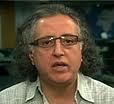Hiroshima to Fukushima
The disaster at Fukushima has thrust the dangers of nuclear power back in people’s consciousness. The idea of an industry renaissance had been carefully orchestrated by corporations that stand to make tons of money. Politicians, ever mindful of who funds their campaigns, have gone along. It was hailed as a clean and safe solution to addressing climate change and energy issues. An irony of the still unfolding tragedy is that it occurred in Japan, the only country to be attacked by nuclear weapons. The fallout from the fallout has spread around the world. Germany is planning to phase out nuclear power. What would happen if a tornado or some other extreme weather phenomenon hits a reactor? The U.S. Nuclear Regulatory Commission says it has found serious problems with some emergency equipment that would have made it unusable in an accident.
Speaker

Helen Caldicott
Helen Caldicott, an Australian-born pediatrician, is a world-renowned environmental activist. She was the founding president of Physicians for Social Responsibility, an organization which was awarded the Nobel Peace Prize. She was named one of the most influential women of the 20th century by the Smithsonian Institute. She is the author of Missile Envy, If You Love This Planet, and Nuclear Power Is Not the Answer.






Peter Earle –
I have a passing knowledge and some background in this field. This lecture just about brought me to tears. And I was at my desk at work. It is important that everyone hear this piece.
David –
So I’ve been listening to this speaker for roughly thirty minutes. And I don’t believe she understands the topic of nuclear physics at all. For instance nuclear power plants (hereafter referee to as an NPP) are not simply stationary nuclear bombs, they are highly regulated energy production plants. If a full meltdown were to occur there are specific backups in place to make sure nothing happens to allow the radiation to escape (called a melt pan, really large concrete pan that spreads the melted material out allowing for it to be rapidly cooled and rendered safe) unfortunately it renders the NPP useless. If you look at the power situation in Japan you will understand why they didn’t want that to happen and desperately tried to save the plant. In fact we should be congratulating the Japanese for building a reactor that was only designed for an 8.5 earthquake and it managed to mostly survive a 9.0.
On the topic of “we detected radiation on the west coast of North America”: Background levels of radiation. Said levels haven’t fluctuated for any noticeable amount since before and after Fukishima.
All in all the speaker is very ignorant of the topic she was talking about. Cannot tell the difference between an Alpha, Beta, or Gamma particle. And relies on her fear of the topic to get a point across. But in the end got everything wrong or significantly distorted the truth.